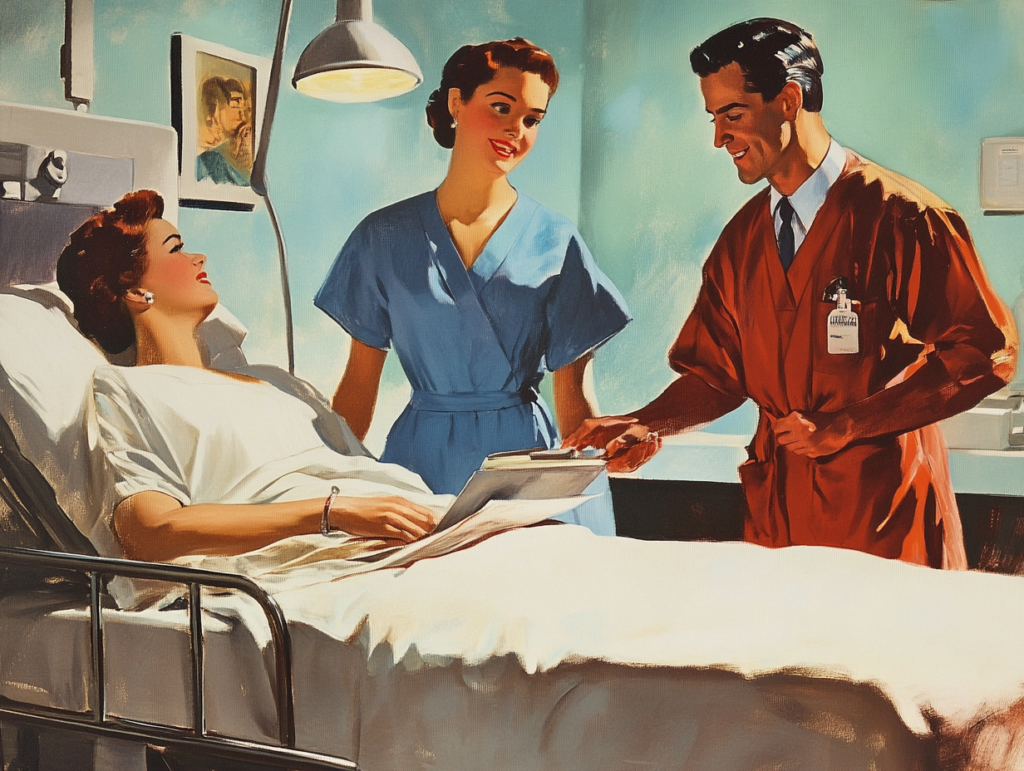De-Escalation Training in Healthcare: The Why

Healthcare Workers Face High-Pressure Environments: The Need for De-Escalation Training
From juggling urgent patient needs to navigating complex medical systems, their days are filled with challenges.
Yet, one aspect of their work often flies under the radar—managing emotionally charged or even volatile situations. When patients or family members escalate into states of distress, anger, or fear, healthcare workers are on the front lines, often without adequate tools to handle such crises. This is where de-escalation training steps in, offering not just a skill set but a lifeline in today’s healthcare settings.
Let’s face it: emotions run high in hospitals and clinics. Patients are scared, in pain, or frustrated, and their loved ones often feel powerless. Healthcare staff, meanwhile, are stretched thin, grappling with long hours, emotional fatigue, and sometimes even safety concerns. It’s no wonder that conflicts or tense situations can arise. But in an environment where every second counts, de-escalation is about more than just calming a situation—it’s about fostering trust, ensuring safety, and preserving the dignity of all involved.
De-escalation training isn’t just a buzzword; it’s a necessity rooted in understanding human behavior. At its core, this training helps workers recognize the signs of escalating tension before it boils over into a full-blown crisis. It’s about reading body language, tone of voice, and verbal cues, then responding in ways that defuse rather than inflame. The goal isn’t to “win” an argument but to create a bridge of understanding that eases the emotional intensity of the moment.
Proper Training is Key
Imagine a nurse managing a patient who’s upset over a prolonged wait time. The patient’s voice rises, and frustration turns to shouting. Without proper training, the nurse might react defensively, escalating the situation further. With de-escalation training, however, that same nurse would likely approach the situation differently. Instead of reacting, they’d listen actively, acknowledge the patient’s feelings, and use a calm, steady tone to redirect the conversation toward a resolution. This approach not only prevents conflict but can leave the patient feeling heard and respected.

But why is this kind of training so essential now? The answer lies in the growing pressures within the healthcare system. With patient volumes increasing, staffing shortages common, and pandemic aftershocks still rippling through the industry, stress levels are higher than ever—for both patients and providers. The more overwhelmed the environment, the more likely tensions are to erupt.
Healthcare Workers Face a Unique Risk
Healthcare workers face risk not always found in other industries: the possibility of verbal or physical aggression. A report from the Occupational Safety and Health Administration highlights that healthcare and social service workers experience higher rates of workplace violence than any other industry. This reality makes de-escalation training not just a soft skill but a critical safety measure.

Effective de-escalation training does more than teach techniques; it empowers healthcare workers with confidence. When staff know they can handle difficult situations, they’re less likely to feel helpless or anxious in the face of conflict. This confidence translates into better interactions, reduced stress, and even improved patient outcomes. After all, a calm, composed caregiver can foster a sense of safety and reassurance, which is invaluable in healing environments.
Check Out: The Barriers to Effective Learning
The Ripple Effect
The benefits of de-escalation training ripple outward. For patients, it means encountering professionals who can navigate their emotions with empathy and skill. For staff, it reduces the risk of burnout by alleviating the mental and emotional toll of confrontational situations. And for healthcare organizations, it creates a more harmonious workplace, which can lead to lower turnover rates and better overall morale.
Critics might argue that healthcare workers already have enough on their plates without adding yet another training module. And while that’s a fair point, the return on investment for de-escalation training is undeniable. The skills taught aren’t just applicable in rare emergencies; they’re valuable in daily interactions with patients, colleagues, and even personal relationships. De-escalation isn’t about doing more—it’s about working smarter and with greater humanity.
It's Not Just Common Sense
There’s also a misconception that de-escalation is simply common sense. While intuition plays a role, the techniques involved are nuanced and backed by psychology. For instance, learning how to maintain an open posture, use specific phrases that validate emotions, or set boundaries without sounding confrontational takes practice. These aren’t things that come naturally to everyone, especially in the heat of a tense moment. Structured training provides the framework and repetition needed to turn these skills into second nature.

The need for such training becomes even more apparent when you consider the diversity of patients and their needs. Cultural differences, language barriers, and varying levels of trust in the healthcare system can all impact how patients and their families react under stress. De-escalation training equips staff to navigate these complexities with sensitivity, ensuring that no one feels dismissed or misunderstood.
Learn About: The History of Restraint and Evolution
Empathy is Key
One of the most profound aspects of de-escalation is its emphasis on empathy. In a fast-paced, efficiency-driven healthcare world, it’s easy for human connection to take a backseat. De-escalation reminds us of the power of slowing down, listening, and treating each individual with care and respect. This doesn’t just de-escalate situations; it builds relationships and fosters a culture of compassion.
So, is there a need for de-escalation training in healthcare? Absolutely. It’s not just about preventing conflicts or ensuring safety—it’s about creating an environment where everyone feels valued, respected, and understood. As healthcare evolves, so must the tools we give its workers. De-escalation training is one of those tools, and it’s long past time for it to be a standard part of every healthcare professional’s education.
Healthcare as a Space for Healing, Connection, and Growth
De-escalation training, at its heart, isn’t just a tool for preventing conflict—it’s a means of redefining the healthcare experience. In many ways, this training reaffirms the central mission of healthcare: to care for the whole person. Patients come to healthcare facilities in moments of profound vulnerability. How they’re treated during these moments can shape their perceptions of the healthcare system for years to come. By investing in the emotional intelligence and conflict-resolution skills of its workforce, the healthcare industry can truly become a place of safety and trust.
Furthermore, de-escalation training also reflects an investment in the well-being of healthcare workers themselves. When staff members feel equipped to manage difficult interactions, they experience less emotional strain. This fosters a healthier work environment, where employees are empowered to connect meaningfully with patients without fearing burnout. Over time, this can transform workplace culture, creating teams that work together more cohesively and respond to challenges with resilience.

A Brighter Future
Imagine a future where every healthcare facility prioritizes de-escalation skills as highly as medical expertise. Nurses, doctors, technicians, and administrative staff would approach each patient with a shared understanding of how to handle emotional distress. Patients would feel not only heard but deeply respected, knowing their concerns are met with compassion and skill. Staff members, in turn, would experience greater job satisfaction and pride in their ability to handle even the toughest situations.
At the societal level, these changes could ripple outward. A healthcare system that prioritizes empathy and conflict resolution could inspire similar shifts in other sectors, from education to law enforcement. The skills taught in de-escalation training are universal—they remind us all of the power of listening, validating, and meeting others where they are. In this sense, de-escalation is more than a professional skill; it’s a life skill that could profoundly benefit communities as a whole.
De-escalation training is not merely a response to workplace violence or difficult patient interactions; it’s a declaration of the kind of care we aspire to provide. It’s about ensuring that every person, whether they’re receiving care or delivering it, feels valued and supported. And in a world that often feels fractured, that kind of care is exactly what we need.
Take Action: Empower Your Healthcare Team with De-Escalation Training
In the fast-paced world of healthcare, every interaction matters. Investing in de-escalation training isn’t just about preventing conflicts—it’s about fostering trust, enhancing patient care, and protecting the well-being of healthcare professionals. Equip your team with the skills to navigate high-pressure situations with confidence and empathy.
Don’t wait until the next crisis—start building a safer, more compassionate workplace today.
📌 Contact us to learn more about de-escalation training for your healthcare facility.
